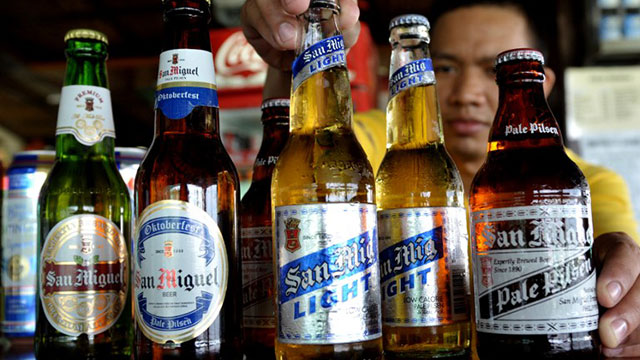SUMMARY
This is AI generated summarization, which may have errors. For context, always refer to the full article.

MANILA, Philippines – The liquor industry lost in its bid to stop the country’s main revenue agency from imposing higher taxes on its products.
In an order issued on Wednesday, January 16, the Manila Regional Trial Court denied the Distilled Spirits Association of the Philippines’ (DSAP) petition for a temporary restraining order (TRO) on the implementing rules and regulations (IRR) of Republic Act 10351, otherwise known as the sin tax reform law, which imposes higher tax rates on tobacco and alcohol products.
The court’s reason: the petitioner has no “clear and unmistakable” right to be protected from the state’s move to collect taxes.
The court said it can only issue a TRO or injunction if this right is established, and if there is “urgent necessity to prevent any serious damage.” Otherwise, it said it has no authority to issue such orders as stated under Section 218 of the National Internal Revenue Code.
Members of DSAP include Destileria Limtuaco, San Miguel Corp., Ginebra San Miguel Inc., Tanduay Distillers Inc., Emperador Distillers, and Alcohol Distilleries-Absolute Chemicals Inc.
Double taxation
DSAP last week asked the Manila RTC to stop the Bureau of Internal Revenue (BIR) from enforcing the sin tax IRR, citing double taxation.
It pointed out that Section 12-C of Revenue Regulation No. 17-2012 seeks to impose excise tax on compounded liquors produced from ethyl alcohol, for which excise tax had already been paid.
Section 12-C states: “the specific tax that was paid on the physical inventory of ethyl alcohol held in possession by manufacturers of compounded liquors as of the effectivity of the Act subsequently used as raw materials in the production of compounded liquors shall not be entitled to tax credit or refund or shall not be deducted from the total excise tax due on compounded liquors.”
DSAP said the IRR would result in substantial losses for the distilled spirits industry.
The BIR however countered, “the petitioners will not incur irreparable damages if the law is implemented.” – Rappler.com
Add a comment
How does this make you feel?
There are no comments yet. Add your comment to start the conversation.